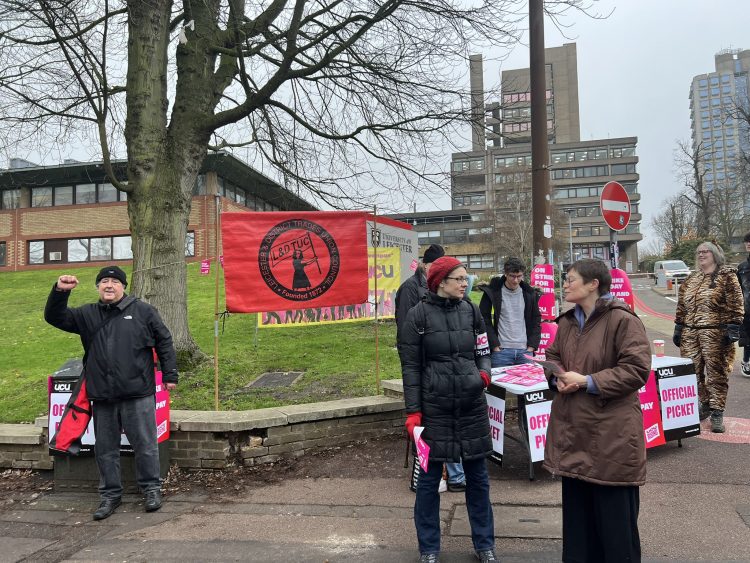The UK is bracing itself for the biggest strike of a generation, as teachers, university lecturers, rail workers and civil servants all head to the picket lines on February 1.
The action, which will see workers in 124 government departments walk out, has been condemned by Prime minister Rishi Sunak, who accused union bosses of wanting to “grind Britain to a halt.”

“We’re in no doubt that this strike action, some of which will fall on the same day or days, will cause significant disruption to the public – whether it’s children having their education disrupted or the public trying to go about their daily lives on their commute,” said the Prime Minister’s official spokesman.
“We don’t think it’s the right course of action, we continue to call unions to step away from the picket lines and continue with discussions.”
Industrial action announced for February 1 includes: RMT drivers at 14 train operators, including East Midlands Railway, PCS public servants in areas including government ministries, driving test centres, museums, ports and airports, NEU members, which could force schools in England and Wales to close, and more than 70,000 staff at 150 universities as part of action by the University and College Union (UCU).
Staff at the University of Leicester are among those set to strike on February 1.
“Strike action is the result of a national ballot of UK Higher Education institutions, in relation to an ongoing trade union dispute with UCU about pay and pensions,” said Professor Henrietta O’Connor, Pro Vice-Chancellor and Head of the College of Social Sciences, Arts and Humanities.
“We will not know the exact number of colleagues here at Leicester who are planning to strike, however, we have a set of plans to manage the situation and mitigate the impact on our students and colleagues.”
The date has been dubbed as a national ‘protect the right to strike’ day by unions, in response to the government’s planned law on minimum service levels.
On Monday (January 16), MPs voted for a bill that could see workers fired if they refuse to work during a strike. It was something which was met with huge resistance by union members, who are refusing to back down over ongoing pay disputes.
Although it emerged that average pay is rising across the UK, it is still falling behind inflation.
“This government is attacking the right to strike,” said a spokesman for the Trades Union Congress (TUC), following Monday’s parliamentary talks.
Instead of listening to the concerns of working people and negotiating fair deals, Rishi Sunak has decided to undermine the right to strike.
As the cost-of-living crisis continues to hurt workers everywhere, we need to be able to stand together and choose to strike when we must. These laws will do nothing to fix this crisis – they will make it even harder for working people to get pay rises.
“Ministers have gone from clapping our key workers to threatening them with the sack.”
“The working class is back now and we’re going to fight for our rights,” RMT leader Mick Lynch declared at a rally outside parliament on Monday night.
“If we are together, we are united, if we build our movement for ourselves, we will be unstoppable in this country.”



